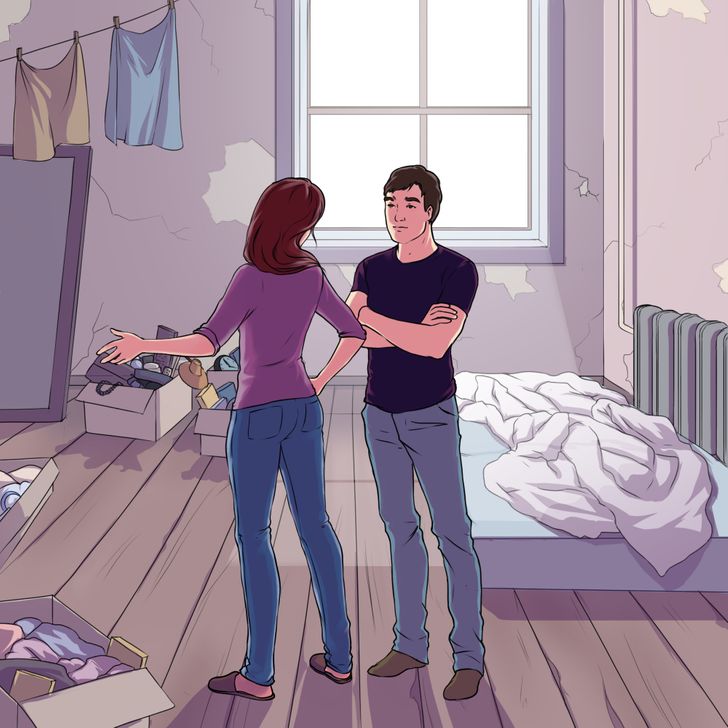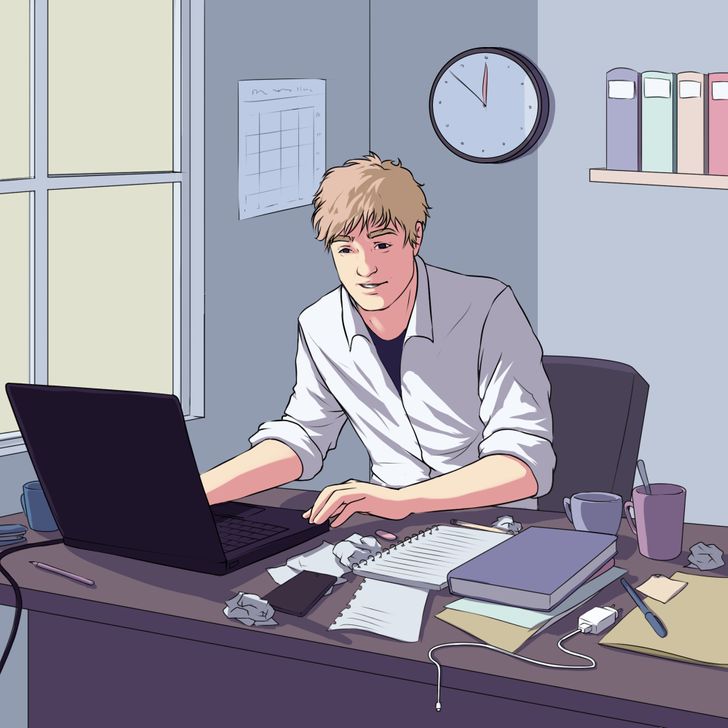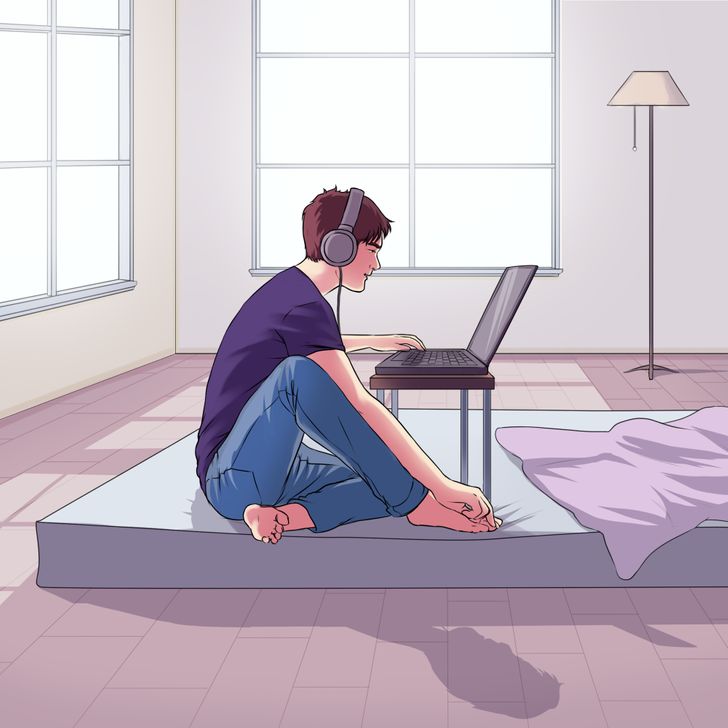A messy room is more than just a cluttered space—it can serve as a window into your personality, habits, and even your emotional state. In today’s fast-paced world, many people struggle with organization, and the state of your room may reflect deeper aspects of your life, including your work style, stress management, and time priorities. This comprehensive guide explores what a messy room says about your personality by delving into various aspects of cluttered living spaces. We’ll examine hidden junk in closets and drawers, neglected home renovations, disorganized workspaces, overflowing laundry baskets or trash cans, and the overall feeling of abandonment in a room. Along the way, we provide practical decluttering and organization tips, supported by insights from psychology and expert advice from reputable sources such as Psychology Today and The Spruce.
Whether you’re seeking to improve your space or simply curious about what your clutter says about you, read on for actionable insights and expert-backed strategies to transform your environment and mindset.
What Does A Messy Room Mean Psychologically?
All Their Junk Is Hidden in Drawers, Closets, and Boxes: What Your Hidden Clutter Reveals

One common trait among individuals with messy rooms is the tendency to hide clutter away in drawers, closets, and boxes. While this may seem like an effort to maintain a semblance of order, it often indicates underlying issues related to control, avoidance, or emotional attachment.
The Psychology Behind Hidden Clutter
- Emotional Attachment: Often, clutter that’s tucked away isn’t thrown out because of an emotional attachment to items that remind you of the past. This behavior can signal difficulty letting go and an underlying fear of change.
- Control and Avoidance: Storing items in hidden spaces may also be a way to maintain a sense of control over your environment. You might feel that if the clutter is out of sight, you’re less responsible for it—an avoidance tactic that can delay effective organization.
- Subconscious Resistance: Unorganized storage can indicate a subconscious resistance to change. The hidden clutter represents the parts of your life you’re not ready to confront or reorganize.
Decluttering Strategies for Hidden Clutter
- Regular Decluttering Routines: Set aside time each week to sort through items in drawers, closets, and boxes. Decide what to keep, donate, or discard.
- Emotional Sorting: Acknowledge the emotional value of certain items. Consider creating a memory box for sentimental items rather than keeping everything scattered around.
- Professional Help: If letting go feels overwhelming, consider professional organizing services that specialize in decluttering and can help you develop strategies to manage emotional attachments.
For more tips on decluttering and understanding the psychology of clutter, visit Psychology Today’s decluttering articles.
There Is an Absence of At Least Some Kind of Renovation: How Neglected Spaces Reflect Your Mindset

A room that hasn’t been updated or renovated in years can speak volumes about your approach to change and self-improvement. When you avoid making any updates or improvements, it might signal a deeper resistance to change or a lack of motivation.
What Neglected Renovations Mean
- Resistance to Change: Neglecting home improvements may indicate a reluctance to change or a fear of the unknown. This can be mirrored in other areas of your life, such as your career or personal relationships.
- Lack of Investment: A room that hasn’t seen any renovation may reflect a broader disinterest in investing time and effort into personal growth or self-care.
- Stagnation: Constantly postponing updates can be a sign of stagnation, where the status quo is maintained even if it’s not beneficial to your overall well-being.
How to Revitalize Your Space
- Set Small Goals: Start with small projects like repainting a wall or reorganizing a corner. Small changes can build momentum for larger renovations.
- Budget-Friendly Updates: Look for budget-friendly renovation ideas such as DIY projects or second-hand finds to refresh your space without a huge financial commitment.
- Create a Vision Board: Visualize how you want your space to look and feel. A clear vision can motivate you to make gradual improvements.
For additional inspiration and practical advice on home renovations, explore The Spruce’s home improvement section.
They Have a Messy Workspace: Disorganization at Work and Its Impact on Productivity

A messy workspace isn’t limited to your home—it often extends to your office area, affecting your productivity and mental clarity. A cluttered desk can be both a symptom and a cause of disorganization, leading to decreased efficiency and increased stress.
The Effects of a Disorganized Workspace
- Reduced Productivity: A cluttered desk can make it harder to focus, leading to lost time searching for documents or tools. This lack of efficiency can increase work-related stress and impact performance.
- Mental Overload: Physical disorganization often leads to mental clutter. When your workspace is chaotic, it can be challenging to prioritize tasks or manage your time effectively.
- Health Implications: An untidy workspace can harbor dust, allergens, and germs, potentially leading to health issues like allergies or respiratory problems.
Steps to Organize Your Workspace
- Implement a Filing System: Use clear labeling and a systematic approach to organizing documents and supplies. Digital tools can also help manage paperwork efficiently.
- Regular Cleaning: Dedicate a few minutes at the end of each day to tidy up your workspace. This habit can help maintain a clean and organized environment.
- Ergonomic Setup: Invest in an ergonomic desk and chair setup. A well-organized workspace that supports your physical health can boost productivity and reduce stress.
For more productivity and workspace organization tips, check out Harvard Business Review’s articles on workplace organization.
They Have a Full Sink, Laundry Basket, or Trash Can: Clutter as a Reflection of Daily Habits

The state of your living space can often be gauged by the condition of common areas such as the sink, laundry basket, or trash can. A full sink or overflowing basket is not just a sign of a busy life—it can also reflect underlying habits and attitudes toward organization and self-care.
What Overflowing Spaces Indicate
- Lack of Routine: Constantly dealing with piles of dishes, laundry, or trash can indicate that you lack a consistent routine for managing daily chores.
- Procrastination: Putting off small tasks can lead to a buildup of clutter, which may be symptomatic of deeper issues such as procrastination or avoidance behavior.
- Stress and Overwhelm: A cluttered living space can add to your stress levels, creating a cycle where the environment contributes to your overall mental burden.
Practical Solutions for Managing Clutter
- Establish Daily Habits: Create a routine for cleaning up immediately after meals and doing laundry regularly. Even 10-15 minutes a day can make a significant difference.
- Declutter Regularly: Set aside time each week to sort through and dispose of unnecessary items. This habit can prevent clutter from accumulating.
- Use Organizational Tools: Invest in storage solutions such as bins, baskets, or organizers to keep clutter in check and maintain a tidy living space.
For more effective decluttering and home organization strategies, visit The Spruce’s decluttering tips.
There’s a Feeling That Nobody Lives There: The Psychological Impact of an Abandoned Space

A messy room can sometimes evoke the impression that the space is abandoned or uninhabited. This perception may be linked to deeper psychological issues such as depression, low self-esteem, or a lack of motivation.
The Emotional Side of a Messy Room
- Depressive Tendencies: A room that appears neglected and unkempt can be both a cause and a symptom of depression. When you feel low, maintaining your living space can seem overwhelming, leading to a vicious cycle of neglect.
- Low Self-Esteem: Cluttered environments can contribute to feelings of inadequacy and low self-worth. The state of your room might reflect an internal struggle with self-care and personal value.
- Lack of Personal Investment: If you perceive your space as a place where “nobody lives,” it may indicate a disconnection between your environment and your identity. This detachment can hinder your motivation to improve both your surroundings and your well-being.
Steps to Reclaim Your Space
- Small Changes, Big Impact: Start with one area of your room, such as a desk or a corner, and make incremental improvements. Seeing progress can boost your motivation.
- Personalize Your Environment: Incorporate elements that reflect your personality and make you feel at home, whether it’s photos, artwork, or favorite books.
- Seek Professional Help: If you suspect that your living environment is a reflection of deeper mental health issues, consider talking to a mental health professional for support.
For additional insights on the psychological effects of clutter and strategies for improvement, check out Psychology Today’s articles on clutter and mental health.
Conclusion: Transform Your Living Space, Transform Your Life
Your room is more than just a physical space—it’s a reflection of your inner world. The way you organize, or fail to organize, your environment can reveal much about your habits, mindset, and even your emotional state. From hidden clutter in drawers and neglected renovations to disorganized workspaces and overflowing common areas, each aspect of your room offers clues about your personality and daily routines.
By taking proactive steps to declutter, organize, and personalize your space, you not only create a more pleasant living environment but also foster improved mental clarity and overall well-being. Embrace the idea that small changes can lead to significant transformations, and let your space be a reflection of the best version of yourself.
Implementing simple strategies like establishing daily routines, investing in ergonomic setups, and seeking professional help when needed can pave the way for a cleaner, more organized life. As you begin to transform your living space, you might find that the benefits extend far beyond a tidy room—they can boost your confidence, reduce stress, and even enhance productivity in every area of your life.
For ongoing advice and inspiration on home organization and personal growth, consider following trusted sources such as Mayo Clinic, Harvard Health, and The Spruce. Remember, your environment plays a key role in shaping your mindset, and a well-organized space can be the foundation for lasting personal success.
This article is for informational purposes only and should not be considered professional advice. Always consult with relevant professionals for personalized recommendations on home organization and mental health.









Leave a Reply